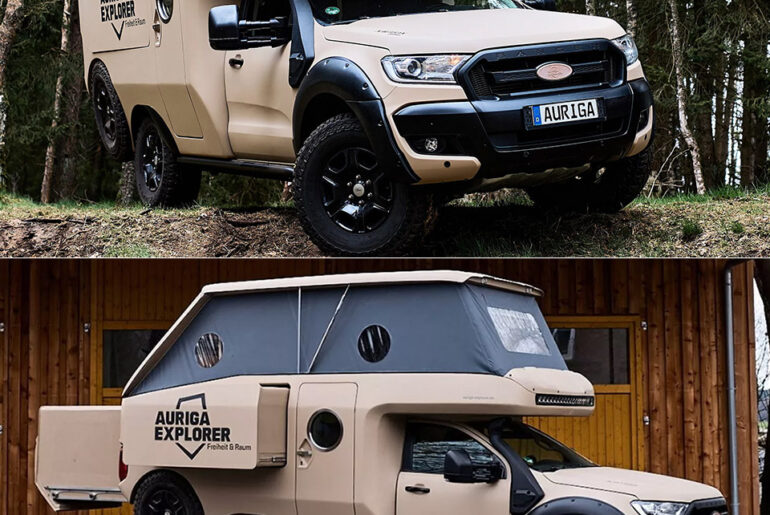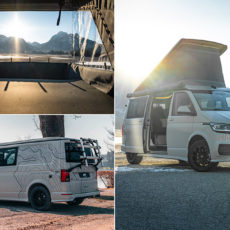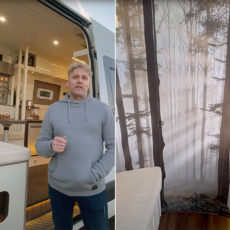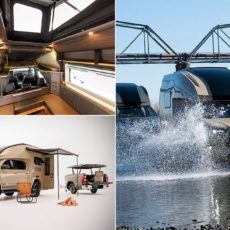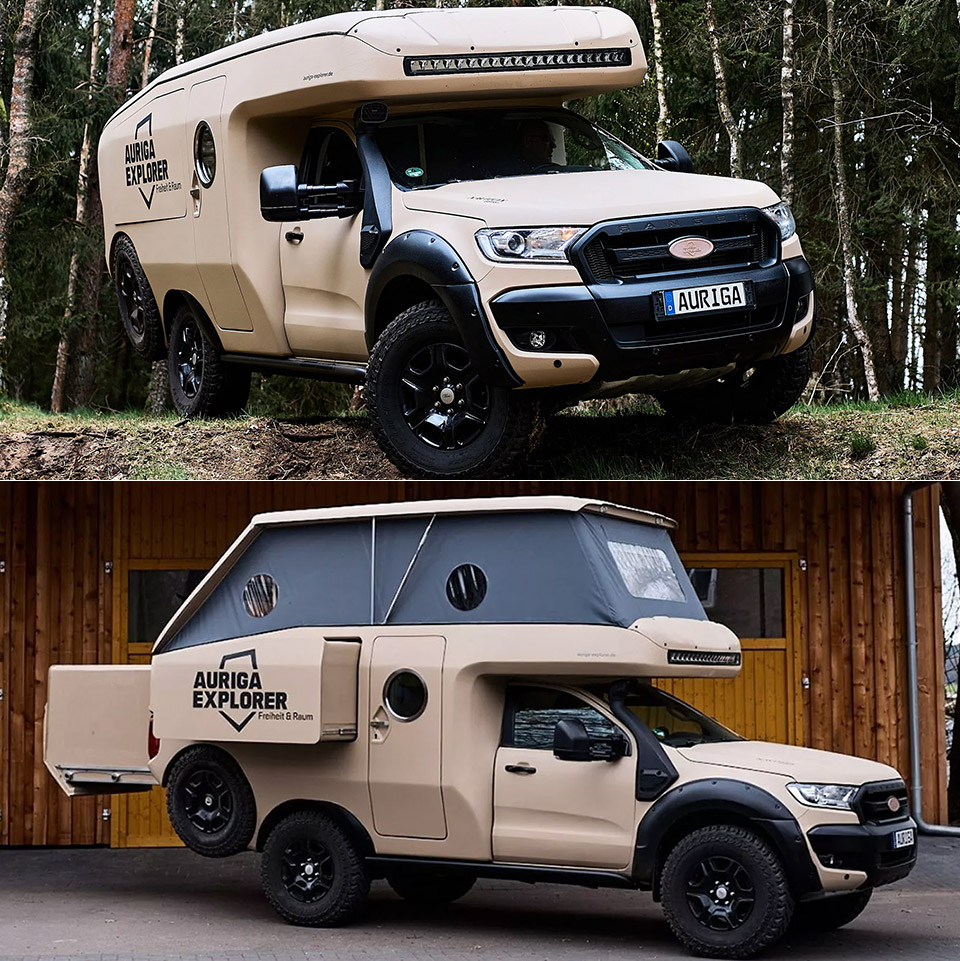
A Ford Ranger sits on a rocky outcrop, but this isn’t your average truck with a camper shell on the back. Auriga Explorer, a German company founded in 2023, created the Voyager, a vehicle that combines the ruggedness of a midsize truck with the comfort of a mobile home. Based on the Ford Ranger and Volkswagen Amarok, this expedition vehicle is designed to tackle any terrain – deserts, forests, mountains – and open up into a spacious refuge at the touch of a button.
Compact pickups, like the Ford Ranger, can’t haul as much as a big F-150 but they are agile, practical and perfect for roads too narrow for full-size trucks. Auriga saw an opportunity and built the Voyager on the Ranger’s single-cab chassis with plans to adapt it for the new Ranger and its platform-sharing cousin the VW Amarok. When closed the vehicle is 5.85 meters long, 2.10 meters wide and 2.25 meters high, so it fits into a regular shipping container for global adventures. But click a button and the Voyager morphs. Slide-outs on both sides and the back expand to 8 square meters of living space and the pneumatic pop-up roof raises the internal height to 2.05 meters so most adults can stand up.
- FORD BRONCO MODEL CAR KIT – Builders ages 9+ can create their own off-road adventures with this detailed LEGO Technic SUV featuring authentic...
- AUTHENTIC DETAILS – This car toy building set includes working suspension, opening doors, functional steering, and a detailed V6 engine under the...
- CAR MODEL KIT – Young engineers can explore learn more about their favorite vehicles with this building and learning toy that demonstrates real...
Stepping inside the Voyager feels like a well designed tiny house. A small alcove above the cab has a double bed with a 20 cm mattress and Froli suspension for comfort, cleverly designed so one person can sleep while others use the living space below. A second double bed converts from the seating area which also serves as six person benches around a pull-out table. The kitchen in the front has a diesel powered two-burner stove and oven, perfect for quick meals or handmade pizza. Storage is plentiful: side slide-outs have closets for clothes and gear, the back slide-out is a garage for camping or sports equipment. A skylight, solar panels and underfloor heating keep the space lit, powered and warm wherever you are.
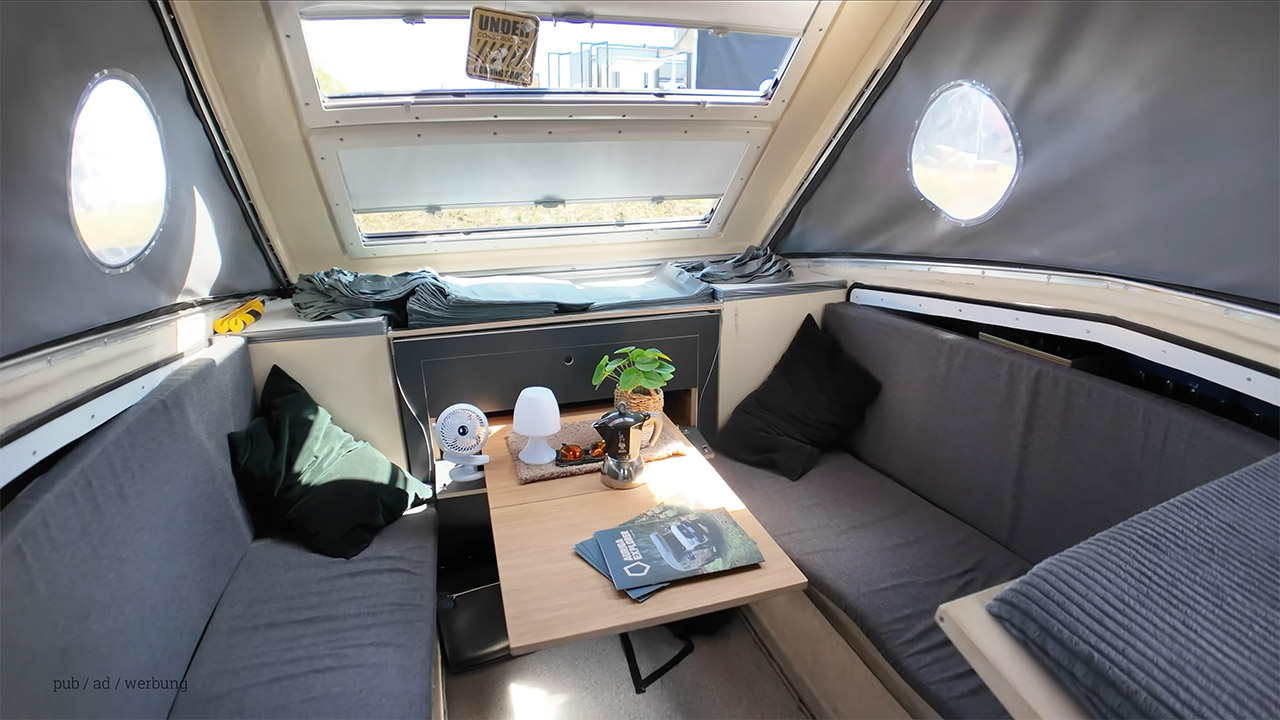
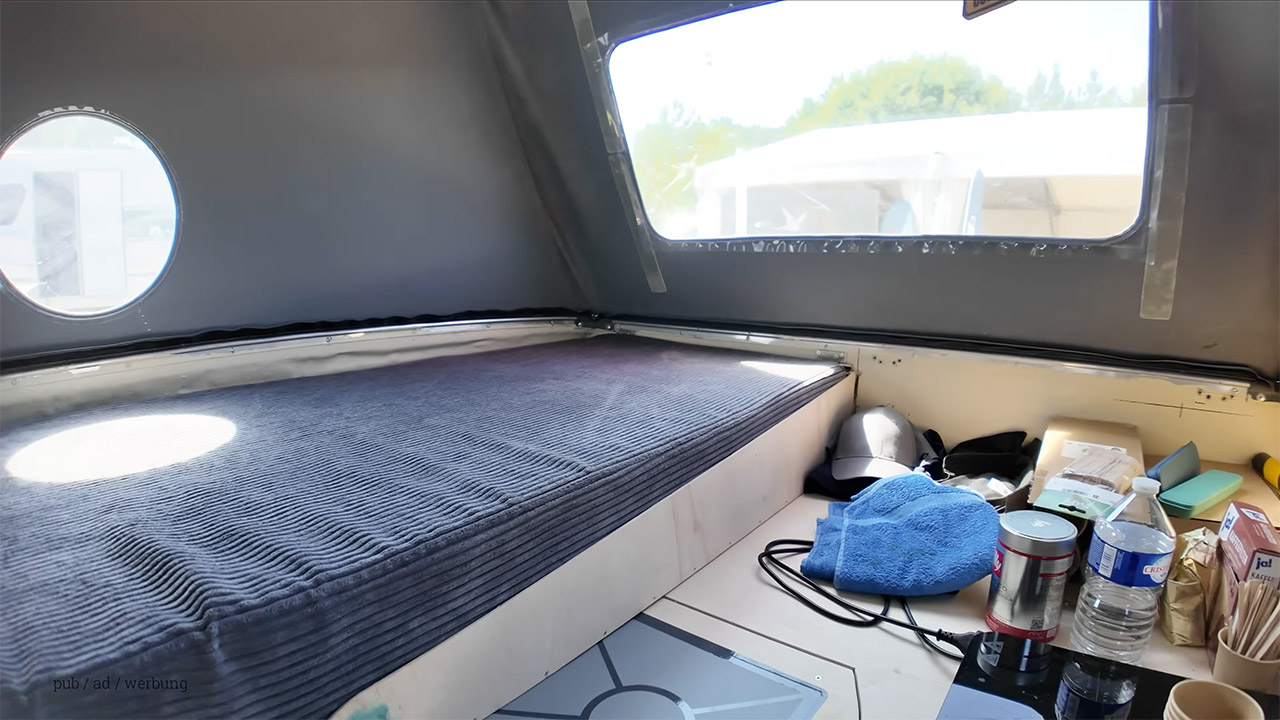
The Voyager is a game changer because of its seamless connection to the truck’s cab. Unlike other campers, where you have to climb through a awkward hatch, the Voyager’s cabin is attached to the driver’s seat, so you can move freely between driving and living space. The entrance also serves as a bathroom with a shower that recycles water and a space-saving dry toilet that slides out when needed. It’s a masterclass in space-saving design without losing function, all housed in a lightweight glass-fiber-reinforced plastic (GRP) shell that weighs less than 3.5 tons. This material is long lasting, weather resistant, low maintenance, UV protected and insulated to keep you comfortable in high temperatures.
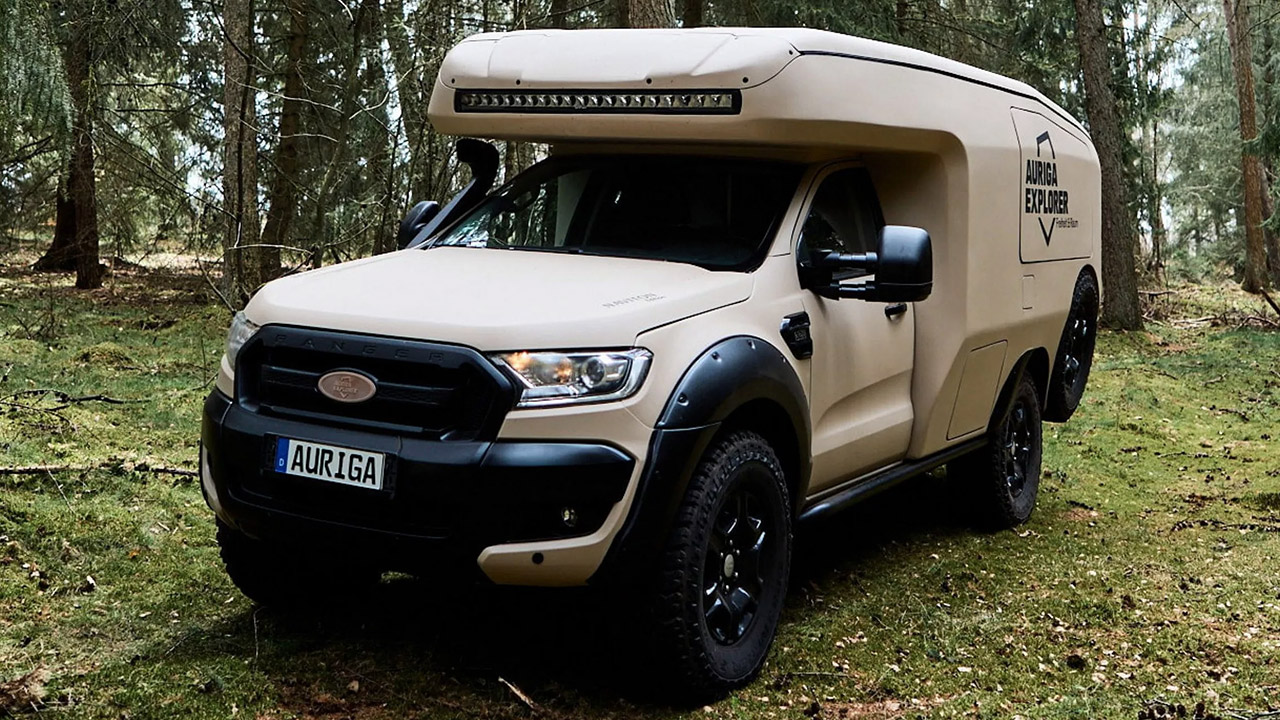
The Voyager excels off-road, thanks to dual spare tires at the back that give it a six-wheeler appearance, and its high ground clearance and sticky tires allow it to negotiate rugged terrain. Wide fender extensions and a reinforced GRP body allow it to withstand the bumps and scrapes of overlanding. Despite the rugged body, it is still agile. When retracted, it drives like a regular pickup truck, making it suitable for narrow mountain roads or small town streets.
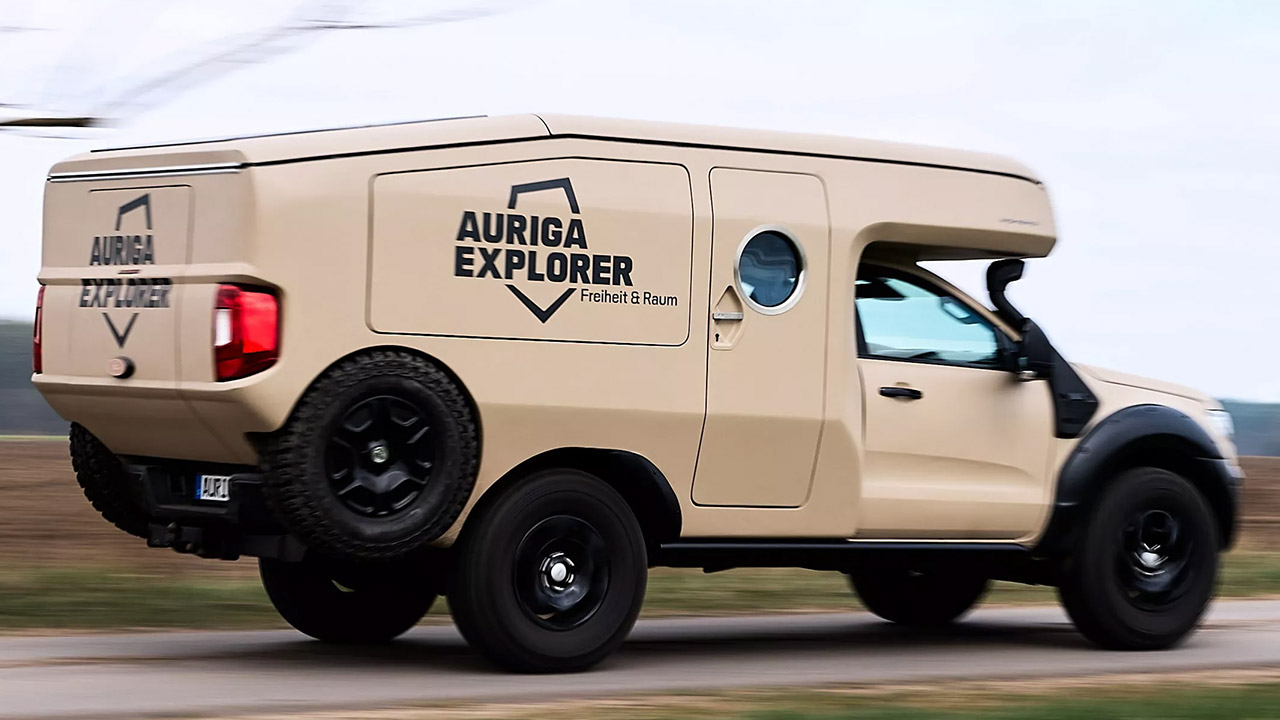
Production will begin in Germany in 2025, and the Voyager has already undergone conceptualization, design, and testing. Pricing has not yet been announced, but the container-friendly dimensions allow it to be sent anywhere in the world, even the Australian Outback and Alaskan arctic. Optional upgrades include a compressor fridge, fresh water tank, and outdoor shower, making it a dwelling on wheels for long excursions.
Source]

